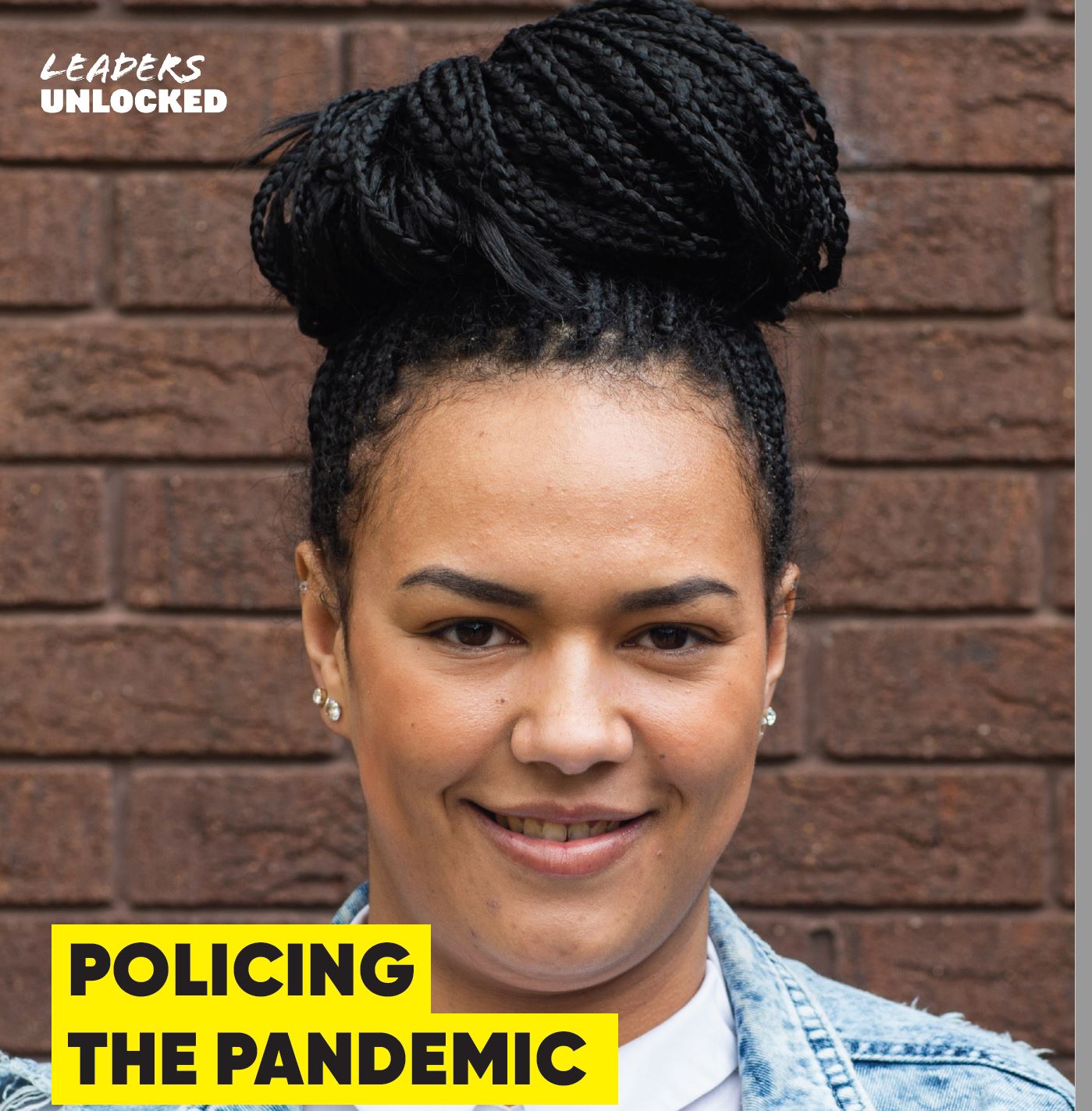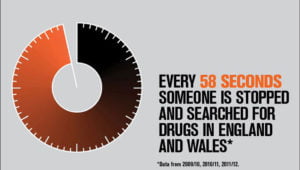The views & experiences of 3,941 young people
A new report co-produced by Leaders Unlocked, Policing the Pandemic, looks at young people’s views and experiences of policing during lockdown. Between May and June 2020, the project gathered views from 3491 young peopleacross England and Wales.
The report features insights and verbatim quotes in relation to:
- Young people’s experiences of policing during the COVID-19 restrictions
- What’s worked and what the challenges have been for young people
- Young people’s recommendations for improving the policing approach
Policing the Pandemic took a youth-led approach at every stage. Young people co-designed the online survey; analysed the data; decided the project’s findings and recommendations; and presented the results to stakeholders.
Black Lives Matter
Part way through the research, on May 25 2020, George Floyd was killed by police in Minneapolis. This tragic event sparked Black Lives Matter protests around the world, including in the UK.
Many of the young people who responded to our survey highlighted Black Lives Matter as one of the most important issues for their generation. In their responses, young people said they wanted to see an end to systemic racism, racial profiling, and the harassment of people of colour by the police.
Young people also heavily criticised the police response to the Black Lives Matter protests. Some commented on the heavy-handed deployment of armed police and riot vans at local protests. Some condemned the arrests of peaceful protestors for not keeping distance in situations where it was not possible to do so. Others pointed to ‘double standards’ in the way police dealt with BLM protestors when compared with crowds doing the conga on VE day or clapping the NHS on Westminster bridge.
Young people spoke of feeling both anger and fear towards the police at this time. Some were afraid of the police abusing their powers. Some were angered by police brutality and systemic racism, both in the US and the UK, and by what they saw as a lack of condemnation of these actions by the UK authorities. They called for the police to do more to condemn these actions, show solidarity with people of colour, and take urgent action to build trust with communities.
Findings
Some of the main findings of the report were:
- Young people felt that the government failed to give clear information about lockdown with just 26% saying they felt well informed about what the police were doing to ensure people follow COVID restrictions in their area.
- There were significant differences in the way young people had experienced policing between local areas. Many young people were positive about seeing a stronger police presence in their local areas, for instance in town centres and tourist areas. However, others commented that they had not seen any more police around during lockdown, or that they felt police were not in the right places.
- Young people in many areas noticed more police patrols, but a lack of active engagement.
- Many young people accessed information from police forces on social media and found it to be helpful. Some of them had accessed local information through Facebook and Twitter posts from their police forces. Others had accessed the yourpolice.uk Instagram channel, which they found engaging and informative.
- Racial disproportionality during the pandemic was a key concern for many young people. Many respondents expressed concerns that police had unfairly targeted young people from BAME backgrounds during lockdown, especially in London. Several people commented that they had observed differences in the way police treated individuals from different ethnic groups. Young people from both white and BAME backgrounds made these observations.
- Some felt unfairly targeted on the basis of their age or where they live. Young people also highlighted disparities in the policing approach based on age and locality. Some felt there was age discrimination in the way the police were enforcing the COVID restrictions, with younger people being targeted more than older people in the population.
- The research suggests that policing during the pandemic has relied too heavily on old assumptions and strategies, and have not taken a sufficiently innovative approach to the crisis. Young people want to see policing break out of this ‘rut’, recognising the uniqueness of the situation and making the best of the opportunity to engage with communities in new ways.
Recommendations
Based on the evidence gathered through this research, the young leaders worked as a group to develop 11 key recommendations for the policing sector.
- Work with local areas to ensure people are well informed.
- Use social media more effectively to target young people and key demographics.
- Change the narrative.
- Take a clear stance on Black Lives Matter and police brutality.
- Develop police training to challenge bias and stereotypes around race and age.
- Develop police training on empathy and vulnerability.
- Focus on community engagement to combat rising mistrust.
- Share good examples of community engagement to promote more consistency.
- Police officers to wear PPE and adhere to social distancing.
- Find alternatives to fines, as fines disproportionately punish the poor.
- Carry out scrutiny of arrests and searches over this period.








